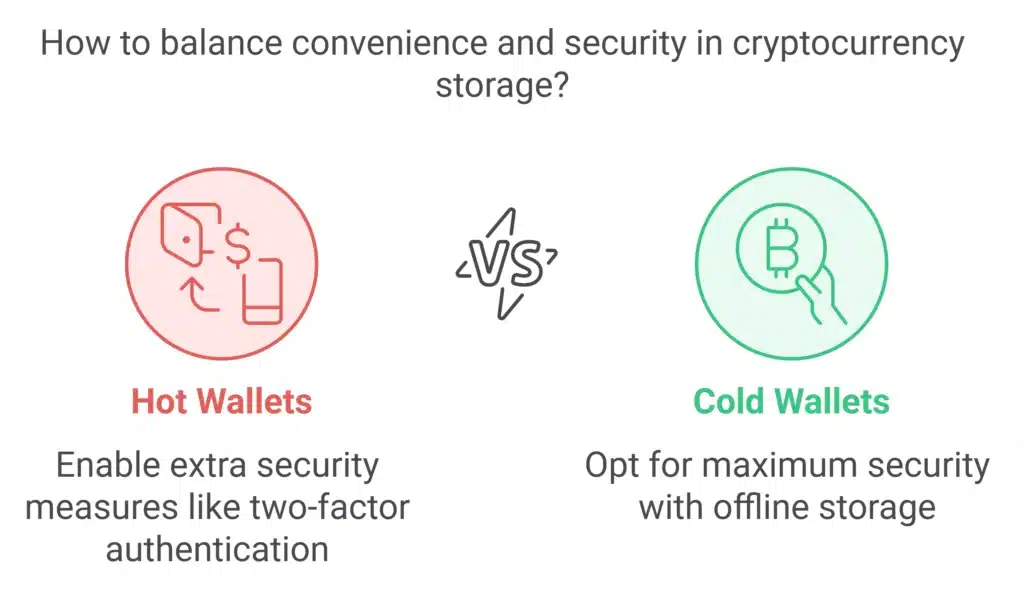Introduction: Why Secure Storage for Your Cryptocurrency Wallets Matters
In cryptocurrencies, your wallet holds the key to your digital assets. Whether you’re holding Bitcoin, Ethereum, or any other cryptocurrency, ensuring your wallet is stored securely is paramount. Cybercrime and hacking incidents have increased, making following best practices for safeguarding your investments vital.

Types of Cryptocurrency Wallets and Their Security Features
Several types of cryptocurrency wallets are available, each offering different levels of security. Let’s explore the most popular types:
Hot Wallets: Convenient but Less Secure
Hot wallets are connected to the internet and are generally easier for day-to-day transactions. However, because they are online, they are more vulnerable to hacking and cyber threats. If you’re using a hot wallet, ensure you follow extra security steps, such as enabling two-factor authentication.
Cold Wallets: The Most Secure Storage Option
Cold wallets, or hardware wallets, are offline storage solutions. They are considered the safest option for long-term storage, as they are not connected to the internet and are much less susceptible to cyber-attacks. Examples include hardware devices like Ledger or Trezor.
Best Practices for Secure Cryptocurrency Wallet Storage
To keep your digital assets safe, here are some expert-approved strategies:
Enable Two-Factor Authentication (2FA) for Extra Protection
Always use two-factor authentication on any wallet service that offers it. This adds an extra layer of security by requiring a second form of verification, such as a code sent to your phone.
Use Strong, Unique Passwords for Wallets
A strong password is your first line of defense. Avoid using easily guessable passwords like your name or birthday. Instead, create a complex and unique password that combines letters, numbers, and special characters.
How to Safely Backup and Recover Your Cryptocurrency Wallets
Backing up your wallet is crucial for recovery in case of loss, theft, or damage to your hardware device.
Keep Multiple Backups in Secure Locations
It’s essential to back up your wallet’s private keys and recovery phrases. Store these backups in multiple secure locations—preferably offline, like in a safe or secure physical vault.
Use Encrypted Storage for Backup Files
Encrypt your wallet backups for added protection. This ensures that even if someone gains access to the backup files, they won’t be able to use them without the decryption key.
Avoiding Common Cryptocurrency Wallet Security Mistakes
Many users make security mistakes that expose their wallets to hackers and scammers. Here are the top errors to avoid:
Don’t Share Your Private Keys with Anyone
Never share your private keys or recovery phrases with anyone, even if they claim to be from your wallet service provider. Anyone with access to your private keys can control your cryptocurrency.
Beware of Phishing Scams and Malicious Websites
Phishing scams are designed to trick you into giving away your wallet credentials. Always ensure that you are on the official website of your wallet provider, and avoid clicking on suspicious links.
Conclusion: Stay Vigilant for Secure Cryptocurrency Storage
Storing your cryptocurrency wallets securely requires attention to detail and following best practices. By choosing the right type of wallet, implementing multi-layer security, and avoiding common mistakes, you can significantly reduce the theft risk and ensure that your digital assets remain safe.


